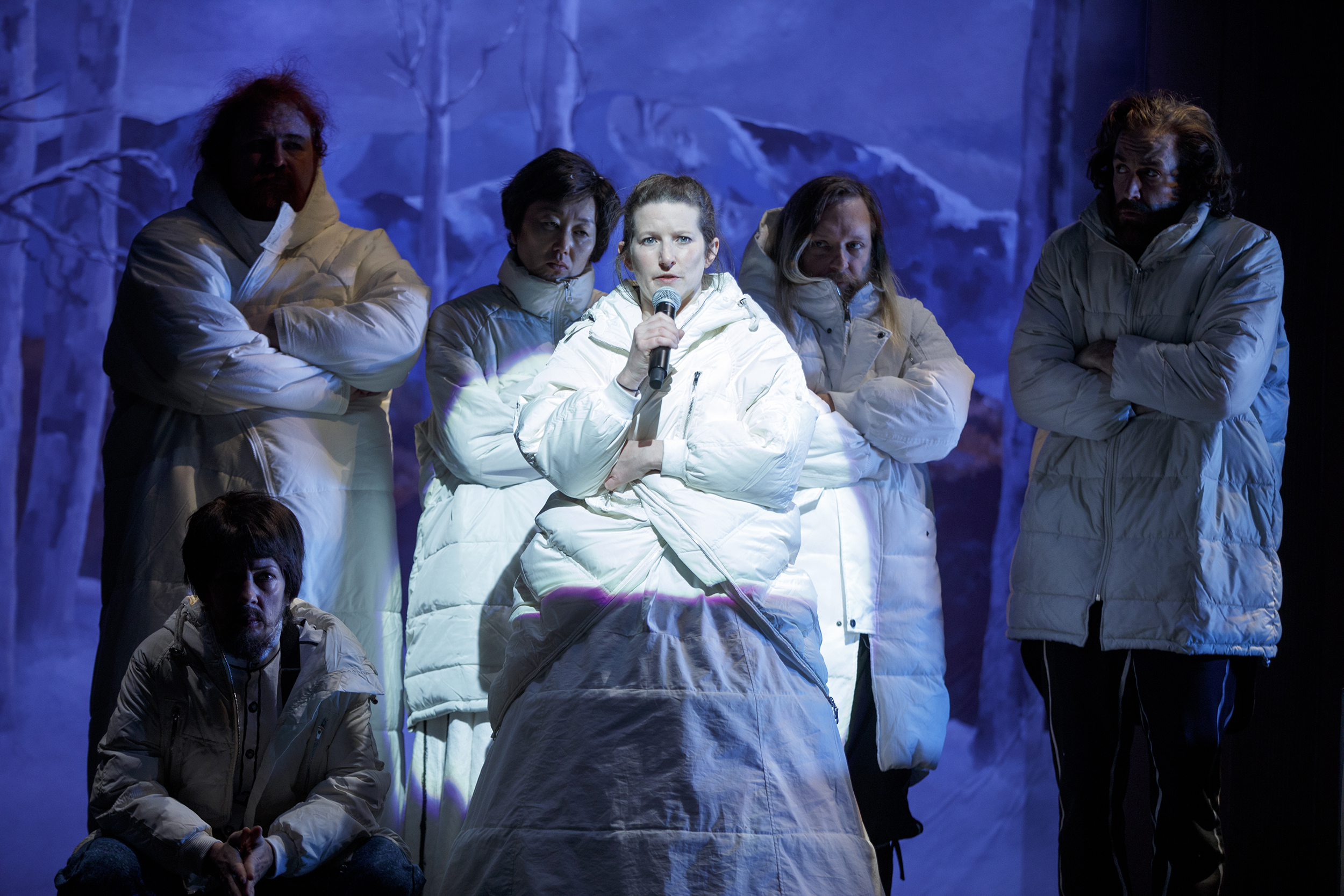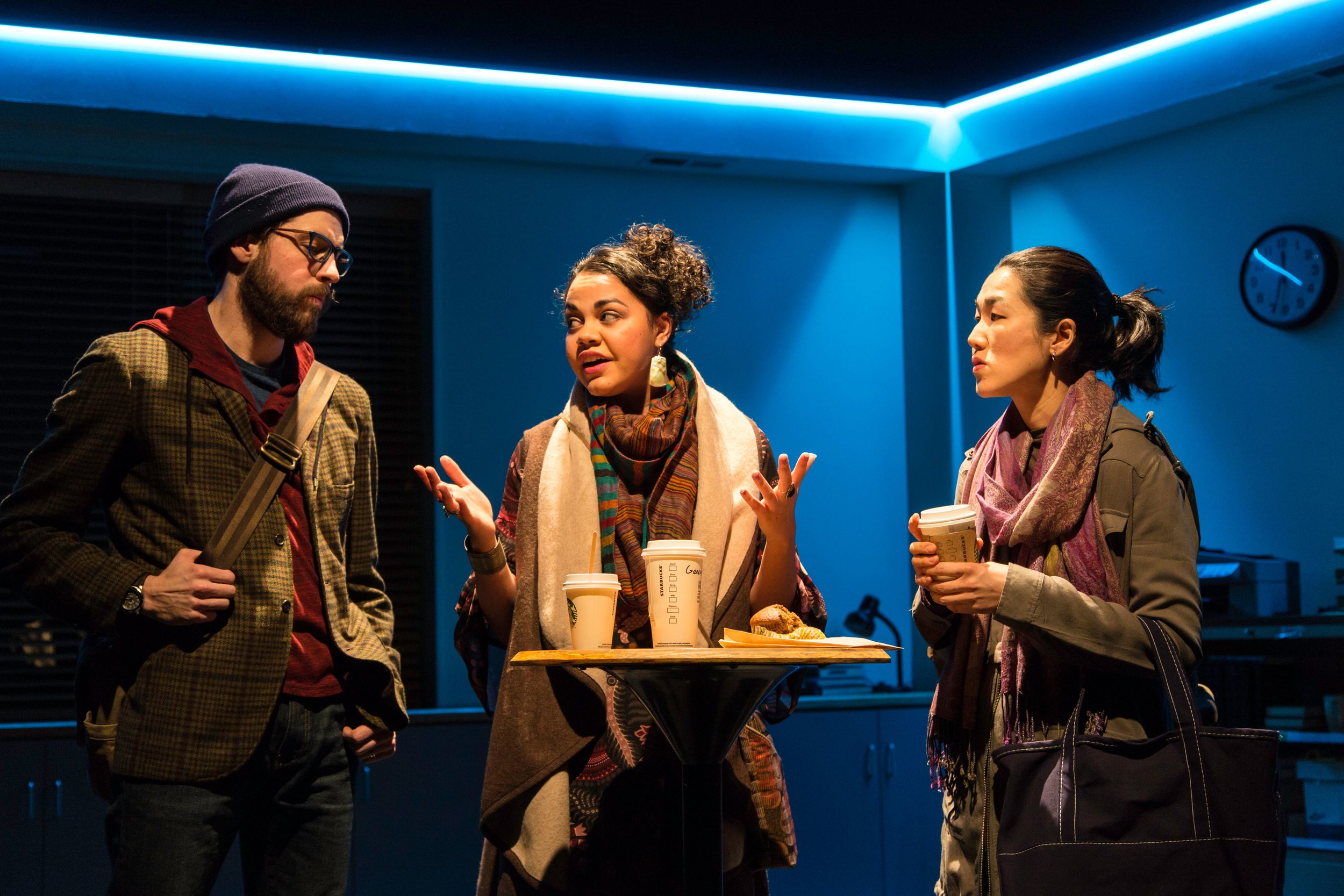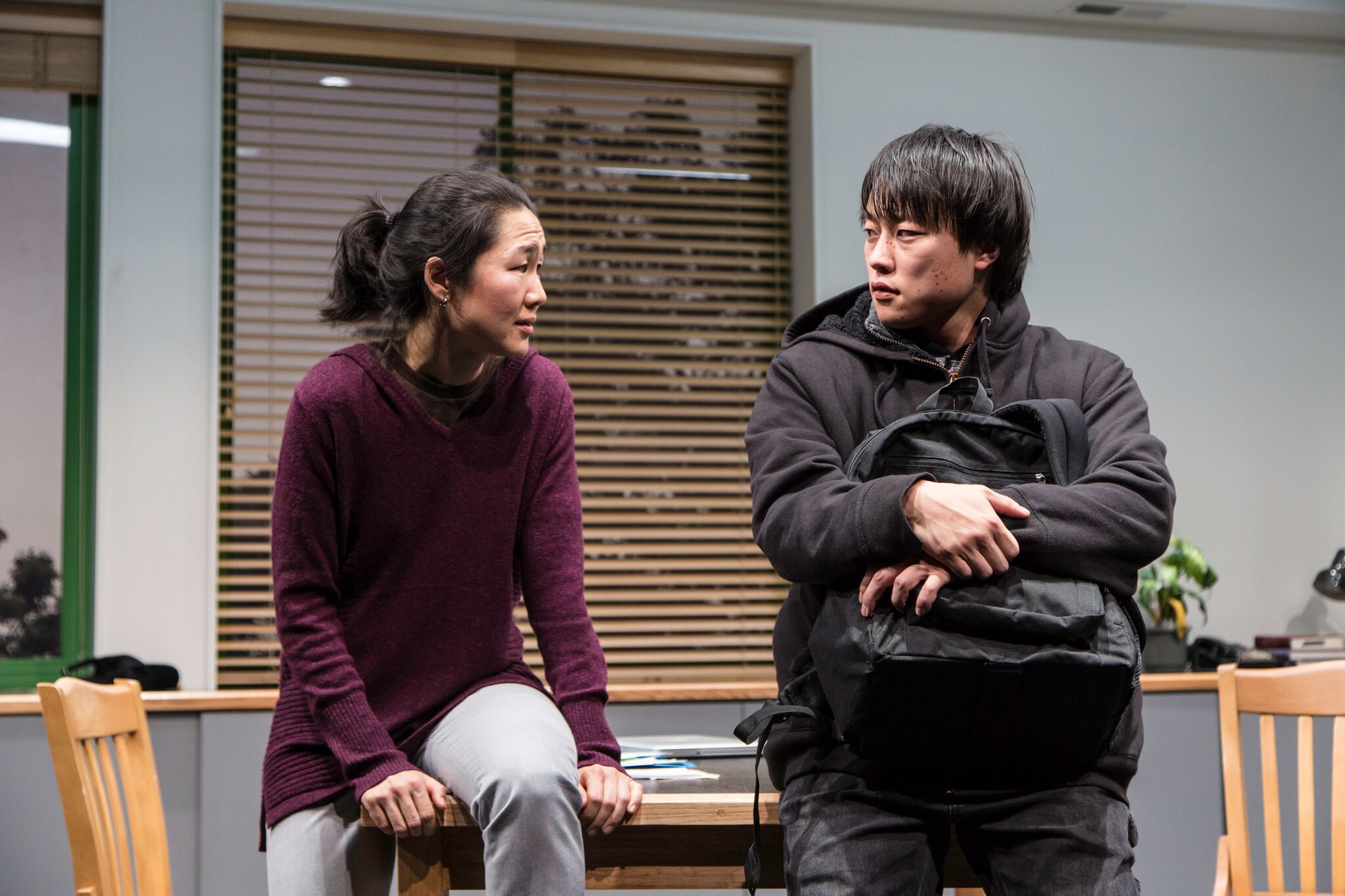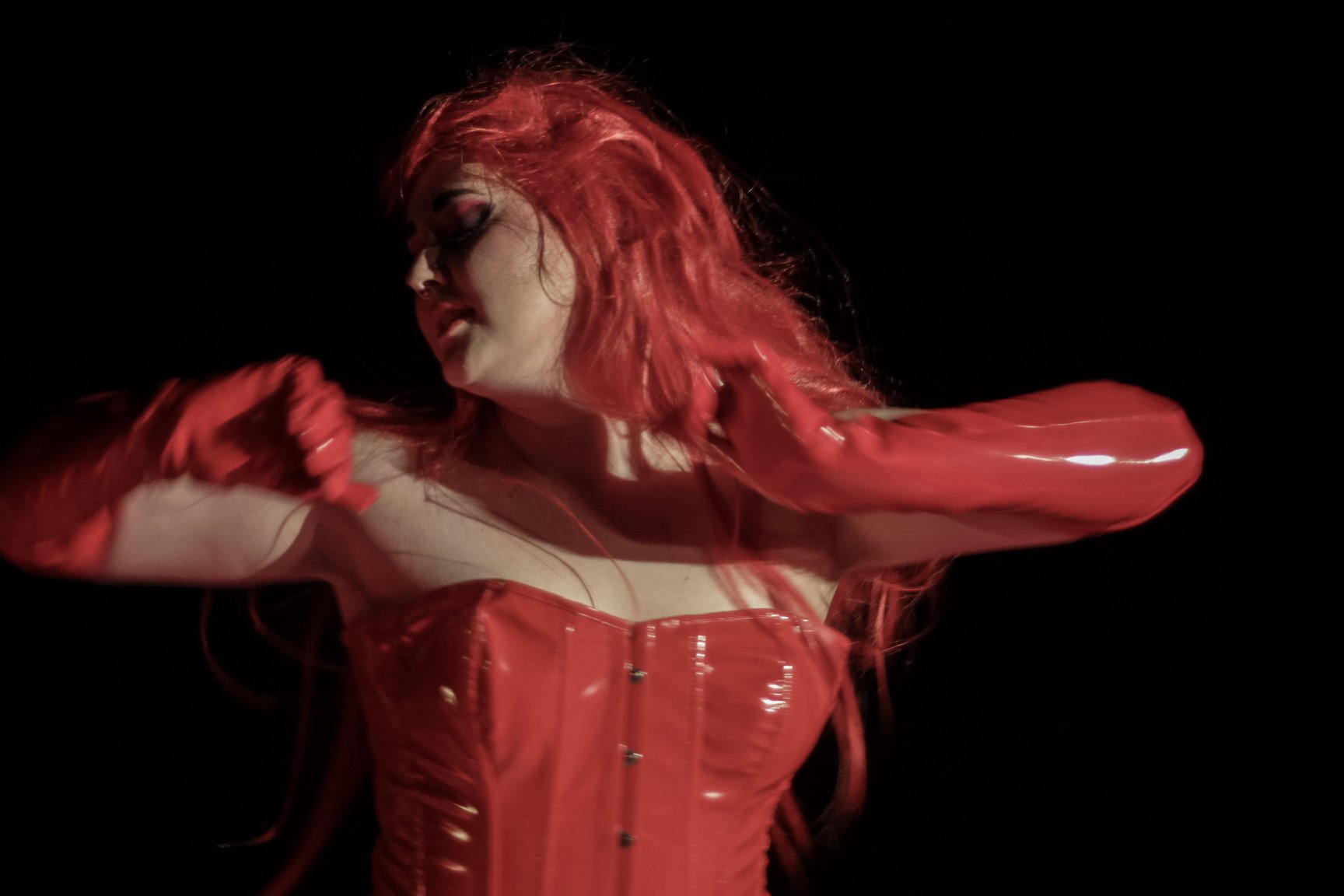Review of Constellations, TheaterWorks
What can be less remarkable than a love story as a two-hander play? The premise that, after a meeting in some context or other, two people will create a satisfying narrative arc as we follow the fortunes of their romance is on pretty solid ground. Mostly, the comedy and/or drama comes from the context, which might provide obstacles, or other incentives. “The course of true love never did run smooth” and therein lies the two-hours or less traffic of our stage. The trick, of course, is in making us care about the two, both separately and as a couple. And that can be easier said than done, sometimes.
Roland (M. Scott McLean), Marianne (Allison Pistorius) (photos: TheaterWorks)
In Constellations, Nick Payne does something very clever with the context, yet not so clever as to be a mere gimmick. His lovers, Marianne (Allison Pistorius) and Roland (M. Scott McLean), live not only in the world, governed by linear temporality, of all biological beings, they also live (as do we all, somehow) in the world of subatomic particles where time is not linear and where the unity we find in the notion of “universe” becomes the multiplicity of the “multiverse.” “The game is the same it’s just up on a different level,” as our nation’s most recent Nobel laureate puts it.
But what a difference that makes! As depicted in Constellations, Marianne and Roland’s lives are patterned with non sequitur, where that necessary first meeting—guests at a rainy barbecue—could go any number of ways, and does. Each time, we jump back to the “medias res” of the same conversation. The start, stop, start again rhythm is something we’re all familiar with from instant replay. Here, the fun is seeing how easy it is to bollocks the badinage. One wrong word or a fake laugh or a dropped detail and either person might be on to the next appealing stranger. There is one path at least that will lead to a satisfying night together, but how soon, and on what terms? And, once that happens, there are various paths that fork from that event, including a cute re-meet at a ballroom dance class.
Marianne (Allison Pistorius), Roland (M. Scott McLean)
How momentous intimacy can be in certain lives, and how casual are most interactions is certainly the main social context here. Both Marianne and Roland are kind of “nerdy”—a word which has gone from a complete put-down (like “dork”) to denoting, in the age of technology über alles, a kind of sexy regard for things once thought abstruse. Here, it’s Roland’s status as a bee-keeper, and Marianne’s as a researcher in theoretical cosmology. It’s a cute meet, alright: biology and quantum physics. The man—biology—is the more romantic and takes his bearings from—and even proposes in the terms of—creatures that serve a “queen.” The woman—physics—is more elusive because too brainy for the tedium of linearity. Grand irony (and spoiler) alert: she will come to suffer from biology, soon enough.
Stated like that, it may seem a bit pat, but the proof of the pudding is in the eating. And Pistorius and McLean, directed—with a sure hand that trusts the audience and doesn’t overplay anything—by Rob Ruggiero, are a treat indeed. They play as Brits and that gives a breeziness to their interactions that helps greatly, particularly as their backgrounds don’t quite jell. It’s a romance that works—in the versions of it that do—because Roland likes being a bit out of his depth and because Marianne is always pleasantly surprised by his efforts. We see how easily either or both might go astray—each gets a jealous scene—and how hard it is to remain together for the long haul.
Roland (M. Scott McLean), Marianne (Allison Pistorius)
The popularity of the play, one suspects, derives from its swiftly delineated scenes and for letting us enjoy the sensation of “let’s try that again” or “Take 2.” And the TheaterWorks production, held over to the 22nd, is handsomely mounted by Jean Kim in a surrounded stage that looks more than a little like a planetarium. In its circle, these two orbit while, in an alcove nearby, Billy Bivona plays live the music of the spheres, so to speak, and the lights overhead work within the rhythms the duo provide. It’s subtle and very satisfying, even when the play has to go for big emotion over romantic comedy.
Roland (M. Scott McLean), Marianne (Allison Pistorius)
One of the things quantum physics tells us, of course, is that time is an illusion and, therefore, there is no real beginning or end. Nice to know, and yet the parts of us that become used to certain relatively stable, long-term molecular arrangements aren’t apt to be so nimble as equations would have us be. Marianne, played with glowing charm and a very deft grasp of several realities by Allison Pistorius, eventually must come to grips with a difficult condition, while Roland is always confronted with having to convince Marianne with his low-key but heartfelt attraction to her. M. Scott McClean makes the most of an average guy-ness that is anything but average. They are well-met as characters and support each other quite well as actors.
In the end, Constellations is a great “date play.” To see it, there’s no time like the present, illusory or not.
Constellations
By Nick Payne
Directed by Rob Ruggiero
Set Design: Jean Kim; Lighting Design: Philip S. Rosenberg; Sound Design: Michael Miceli; Casting: McCorkle Casting: Assistant Director: Taneisha Duggan; Production Manager: Bridget Sullivan; Stage Manager: Kate J. Cudworth; Sign Language Coach: Laurel Whitsett
Composer/Musician: Billy Bivona
Cast: M. Scott McLean, Allison Pistorius
TheaterWorks
January 18-February 18, 2018, extended to February 22


























